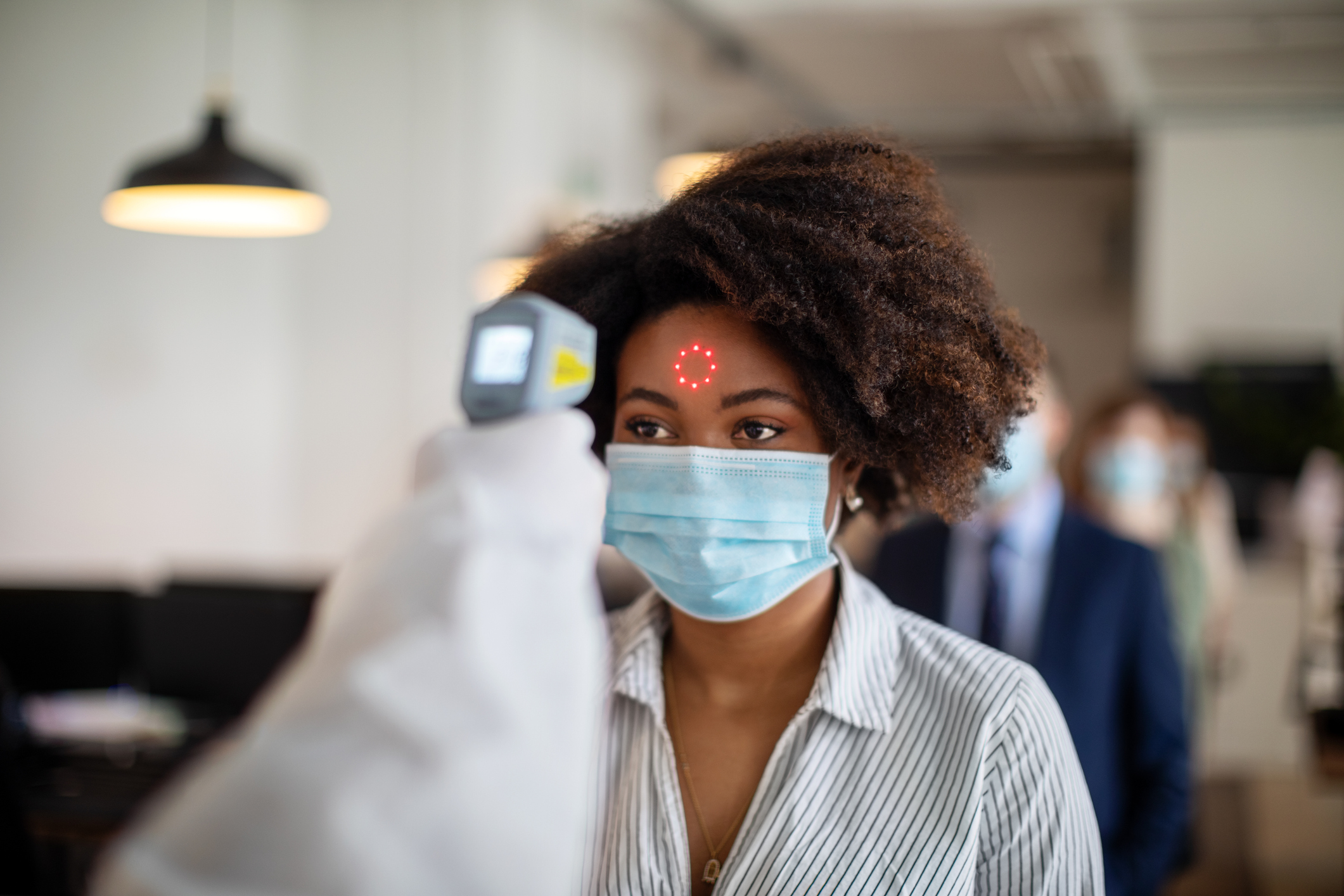Your need-to-knows about monkeypox, as UK cases "set to double today"
It's thought that infections are spiralling out of control.

It's thought that infections are spiralling out of control.
In health news this week, monkeypox virus infection rates are rising rapidly across the UK.
It was reported earlier this week that a further two more cases have been identified here, meaning nine people have now been infected.
It's thought that health officials will officially report that numbers have more than doubled - from nine to 20 - today, as per The Times.
The new infections seem to be occurring here in the UK, as neither of the confirmed new cases this week - one individual from London and one from southeast England - had travelled prior to infection.
It's thought ministers and health officials are increasingly worried about the virus spreading and getting out of control.
Keep reading for all of your need-to-knows about the rising monkeypox virus infection rate, including symptoms, mortality rates and more. Don't miss our guides to long Covid symptoms, sexually transmitted diseases, and feeling sick after sex, while you're here.
Marie Claire Newsletter
Celebrity news, beauty, fashion advice, and fascinating features, delivered straight to your inbox!
Monkeypox virus infection: your need-to-knows
What is monkeypox?
According to the World Health Organisation (WHO), monkeypox is a "viral zoonotic disease" that is normally seen in West Africa.
Prior to this outbreak, the virus hasn't often spread further afield - hence the alarm at the sudden UK outbreak.
Called monkeypox as the disease was originally discovered in monkeys, mortality rates sit at anything from 3 to 6% of those who get the disease.

How do you catch monkeypox?
As per the WHO website, it is transmitted person-to-person via "close contact with lesions, body fluids, respiratory droplets and contaminated materials such as bedding."
It can be passed via the direct contact of sexual intercourse however isn't officially recognised as a sexually transmitted disease (STD).
That said, the UK Health Security Agency is advising men who identify as gay, bisexual or men who have sex with men (MSM) who have had sex recently to keep an eye out for bodily rashes or lesions, as a few recent cases have confirmed that as their sexual orientation or preference.
The UKHSA's Chief Medical Adviser Dr Susan Hopkins added: "We are particularly urging men who are gay and bisexual to be aware of any unusual rashes or lesions and to contact a sexual health service without delay if they have concerns."
Further, Public Health England's Health Director Professor Kevin Fenton has reassured that they are working on building out their vaccine supply - and fast - to prepare for the worst.
That said, the UKHSA maintains that the virus doesn't spread easily, therefore your day-to-day risk of catching the virus remains low.
Where has monkeypox been detected?
So far, out-of-the-ordinary cases have been recorded in Britain, Spain, Portugal, Canada, Australia, and the United States.
The first case in the UK occurred after someone returned to the country from Nigeria.
Monkeypox virus symptoms
There are two phases of monkeypox - the invasion period and the skin eruption period - and both will have different symptoms. Invasion lasts from 0 to five days, and skin eruption anything up to a month.
The most common monkeypox symptoms during the invasion period, according to the WHO, include:
- Fever
- Intense headache (read up on the different types of headache, here).
- Lymphadenopathy (swelling of the lymph nodes)
- Back pain
- Myalgia (muscle aches)
- Intense asthenia (lack of energy).
The most common monkeypox symptoms during the skin eruption period include:
- A rash.
Do note here: the rash will likely be concentrated on your face, hands, feet and genitals, as opposed to your trunk, and it'll likely start on your face and then spread.
The rash will turn into crusts which dry up and fall off, according to the website, and the number you'll experience could range from five, to ten, to several thousand.

How is monkeypox different to chickenpox?
While it looks similar to chickenpox or syphilis, it'll differ in its ability to scab and then further fall off.
Similarly, experiencing lymphadenopathy - that is, swollen lymph nodes - is the biggest clue you have monkeypox, not chickenpox, and one of the main ways you can distinguish the two diseases.
How long does monkeypox last?
Anything from six to 28idays - it varies from person to person.
Is monkeypox deadly?
It can be. According to the Centre for Disease Control and Prevention, it's killed as many as one in ten people who catch the disease in Africa.
If you're worried you might have the disease or know someone who does, Public Health England are advising you to call 111 or a more local sexual health clinic.

Ally Head is Marie Claire UK's Senior Health and Sustainability Editor, nine-time marathoner, and Boston Qualifying runner. Day-to-day, she heads up all strategy for her pillars, working across commissioning, features, and e-commerce, reporting on the latest health updates, writing the must-read wellness content, and rounding up the genuinely sustainable and squat-proof gym leggings worth *adding to basket*. She also spearheads the brand's annual Women in Sport covers, interviewing and shooting the likes of Mary Earps, Millie Bright, Daryll Neita, and Lavaia Nielsen. She's won a BSME for her sustainability work, regularly hosts panels and presents for events like the Sustainability Awards, and is a stickler for a strong stat, too, seeing over nine million total impressions on the January 2023 Wellness Issue she oversaw. Follow Ally on Instagram for more or get in touch.
-
 The 10 best dresses celebrities from Tiffany & Co.'s Blue Book 2025 Gala
The 10 best dresses celebrities from Tiffany & Co.'s Blue Book 2025 GalaCelebrating the brand's marine-inspired collection
By Sofia Piza
-
 These are the 11 cult designer buys of spring 2025—and they're already selling out
These are the 11 cult designer buys of spring 2025—and they're already selling outFrom Miu Miu's must-have cowboy hat to Loewe's latest bag
By Clementina Jackson
-
 Prince William and Princess Kate have announced their 14th wedding anniversary plans
Prince William and Princess Kate have announced their 14th wedding anniversary plansBy Jenny Proudfoot